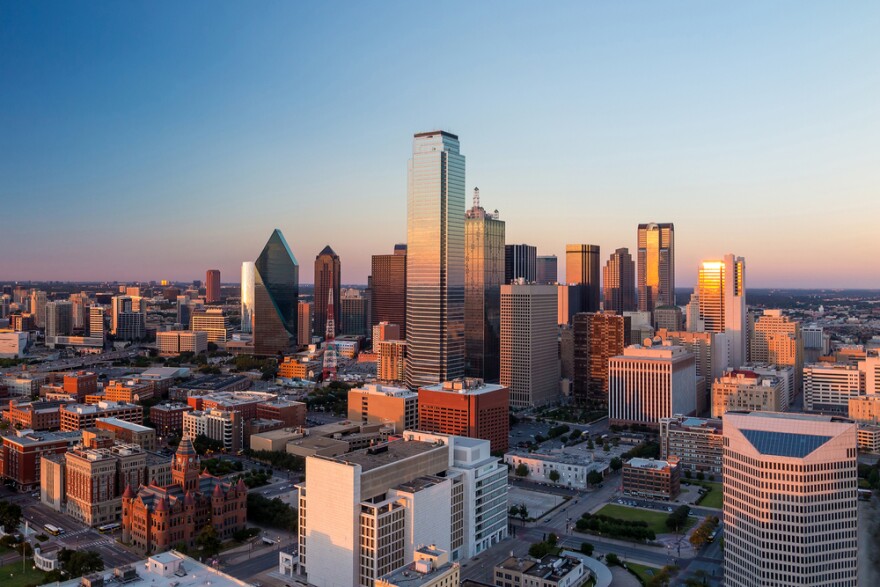Texas cities again ranked among the most polluted in the nation in the American Lung Association’s “State of the Air 2015” report released today. The report focused on ozone, also known as smog, and particle pollution. High ozone levels exacerbate conditions such as asthma, lung disease and heart disease.
Dallas-Fort Worth is ranked No. 7 on the list of most ozone-polluted metropolitan areas. Houston is ranked No. 6.
The cause of high ozone
Janice Nolen, assistant vice president of national policy at the American Lung Association, says ozone levels were up in part because of the drought and heat.
“The heat is one of the things that creates ozone," she said. "It takes the emissions that come out of tailpipes and smokestacks and cooks them, and if you’ve got the same amount of emissions and not as much heat, you’re not going to have as much heat, with more heat, more ozone.”
“So when we’re looking at ozone and trying to see where the problem is, you have to look at the whole metropolitan area because people who are commuting into Dallas, industries that are growing there and a whole host of things are all contributing little bit to the missions that will cook and form ozone,” Nolen said.
The push for new standards
Nolen pointed out that some Texas cities are doing well – places like Brownsville and McAllen-Edinburgh made the cleanest cities list for ozone. Still, she says the results show the need for cleaner vehicles and cleaner power plants.
"The [ozone] level we are using as a marker is out of date."
The American Lung Association, along with a unanimous panel of scientists, is also urging the Environmental Protection Agency to lower acceptable limits of ozone.
“The third thing that really has to happen and that is we need a stronger ozone standard," Nolen said. "So even though levels that we’re talking about, the problem that we see in Dallas and Houston with ozone is it’s actually worse than we’re talking about because the level we’re using as a marker is out of date. And really much lower levels of ozone are hurting people on days that don’t look like they’re bad but really are bad.”





